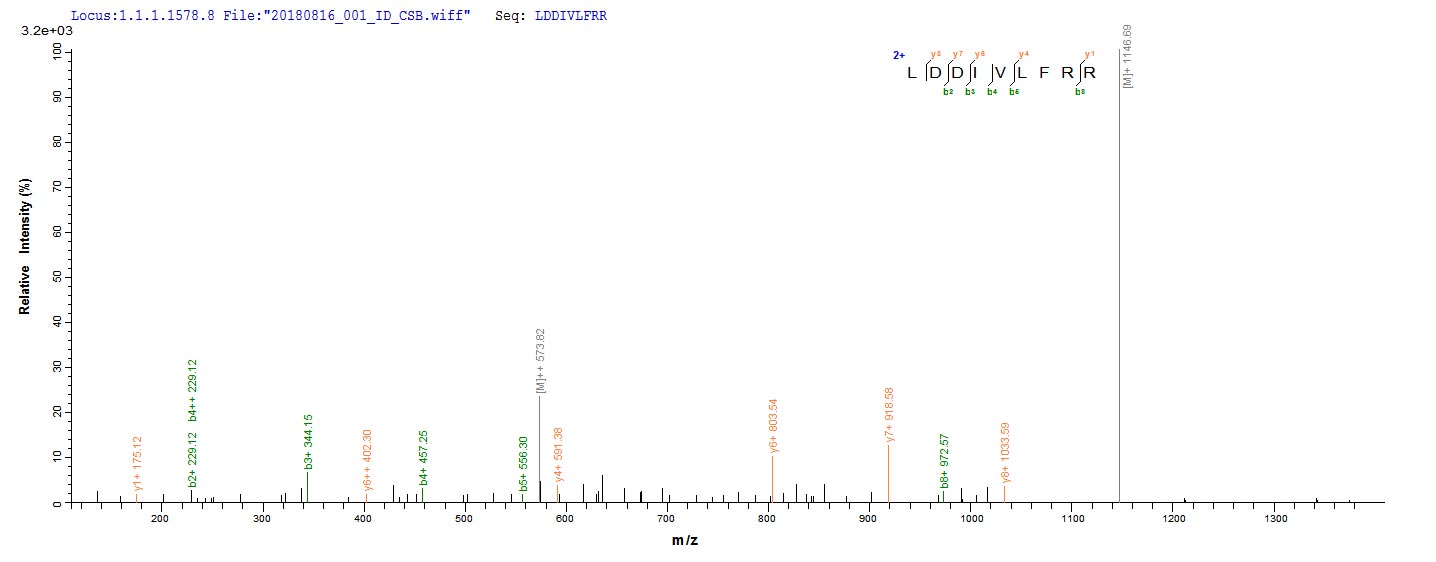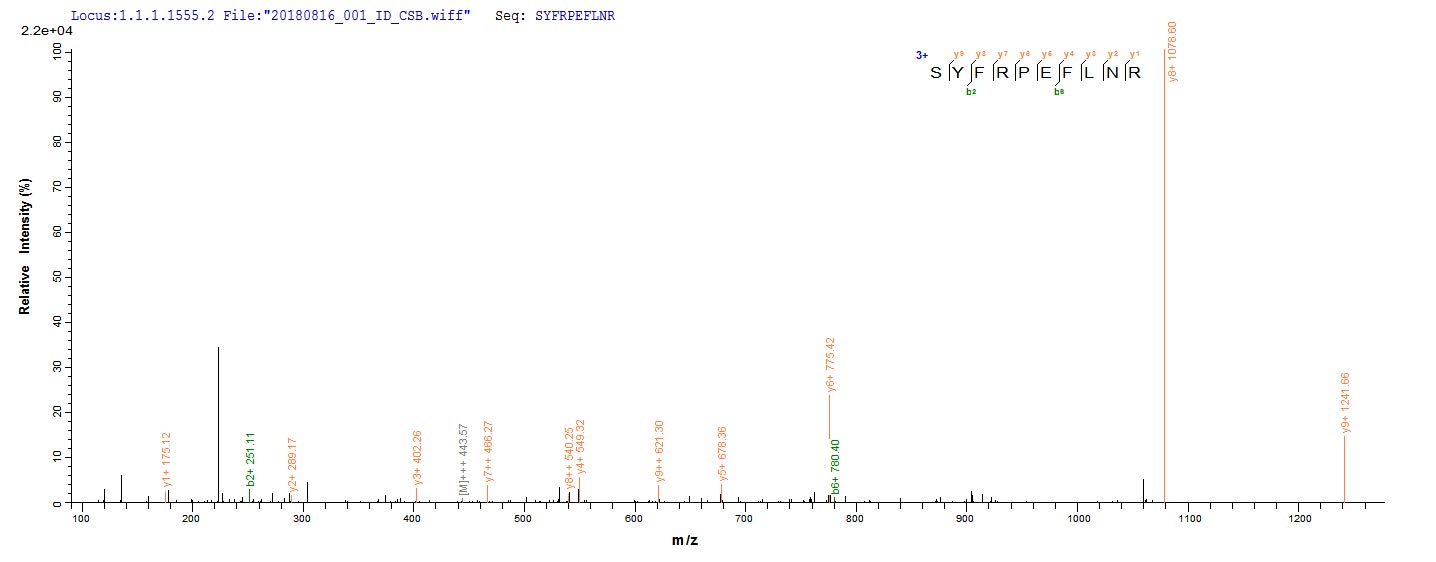Producing recombinant Trypanosoma cruzi Heat shock protein 100 (HSP100) in E. coli involves multiple steps. Initially, the gene encoding the partial HSP100 protein (1-138aa) is co-cloned into an expression vector with an N-terminal 10xHis-tag and C-terminal Myc-tag gene and transformed into E. coli cells. The bacteria are grown under specific conditions to induce protein expression. Cells are harvested and lysed to release the recombinant HSP100 protein. Purification is achieved using the affinity chromatography method. Protein purity is assessed using SDS-PAGE,exceeding 90%.
HSP100 in T. cruzi is part of a broader family of heat shock proteins that are conserved across different species and play critical roles in cytoprotection, differentiation, disease progression, and transmission [6]. HSPs, including HSP100, are involved in gene regulation and mRNA stability during heat shock conditions in T. cruzi [2]. These proteins are essential for stress-induced stage differentiation and are significant for disease progression and transmission [3]. The upregulation of HSP100 is observed in response to environmental stresses such as severe heat shock, leading to nucleolar accumulation of mRNAs in T. cruzi [4]. Furthermore, the induction of heat shock proteins, including HSP100, is implicated in the differentiation of T. cruzi into infective metacyclic forms, preparing the parasite for host invasion [5].
References:
[1] T. Ürményi, R. Silva, & E. Rondinelli, The heat shock proteins of trypanosoma cruzi,, p. 119-135, 2013. https://doi.org/10.1007/978-94-007-7305-9_5
[2] D. Rodrigues, R. Silva, E. Rondinelli, & T. Ürményi, Trypanosoma cruzi: modulation of hsp70 mrna stability by untranslated regions during heat shock, Experimental Parasitology, vol. 126, no. 2, p. 245-253, 2010. https://doi.org/10.1016/j.exppara.2010.05.009
[3] S. Bentley and A. Boshoff, trypanosoma bruceij protein 2 functionally cooperates with the cytosolic hsp70.4 and hsp70 proteins,, 2019. https://doi.org/10.1101/641704
[4] E. Nazer, R. Verdun, & D. Sánchez, Severe heat shock induces nucleolar accumulation of mrnas in trypanosoma cruzi, Plos One, vol. 7, no. 8, p. e43715, 2012. https://doi.org/10.1371/journal.pone.0043715
[5] A. Alcina, A. Urzainqui, & L. Carrasco, The heat‐shock response in trypanosoma cruzi, European Journal of Biochemistry, vol. 172, no. 1, p. 121-127, 1988. https://doi.org/10.1111/j.1432-1033.1988.tb13863.x







